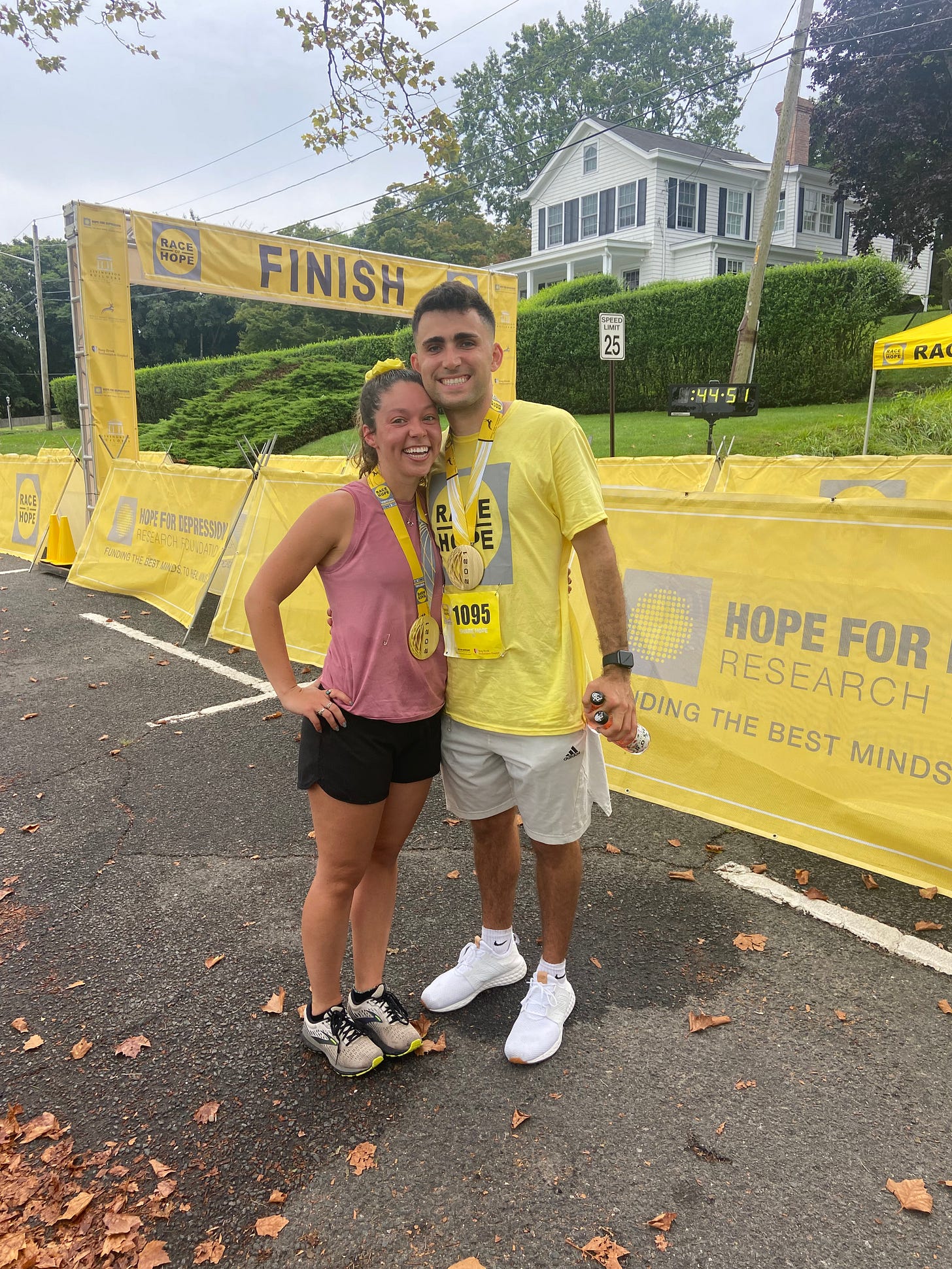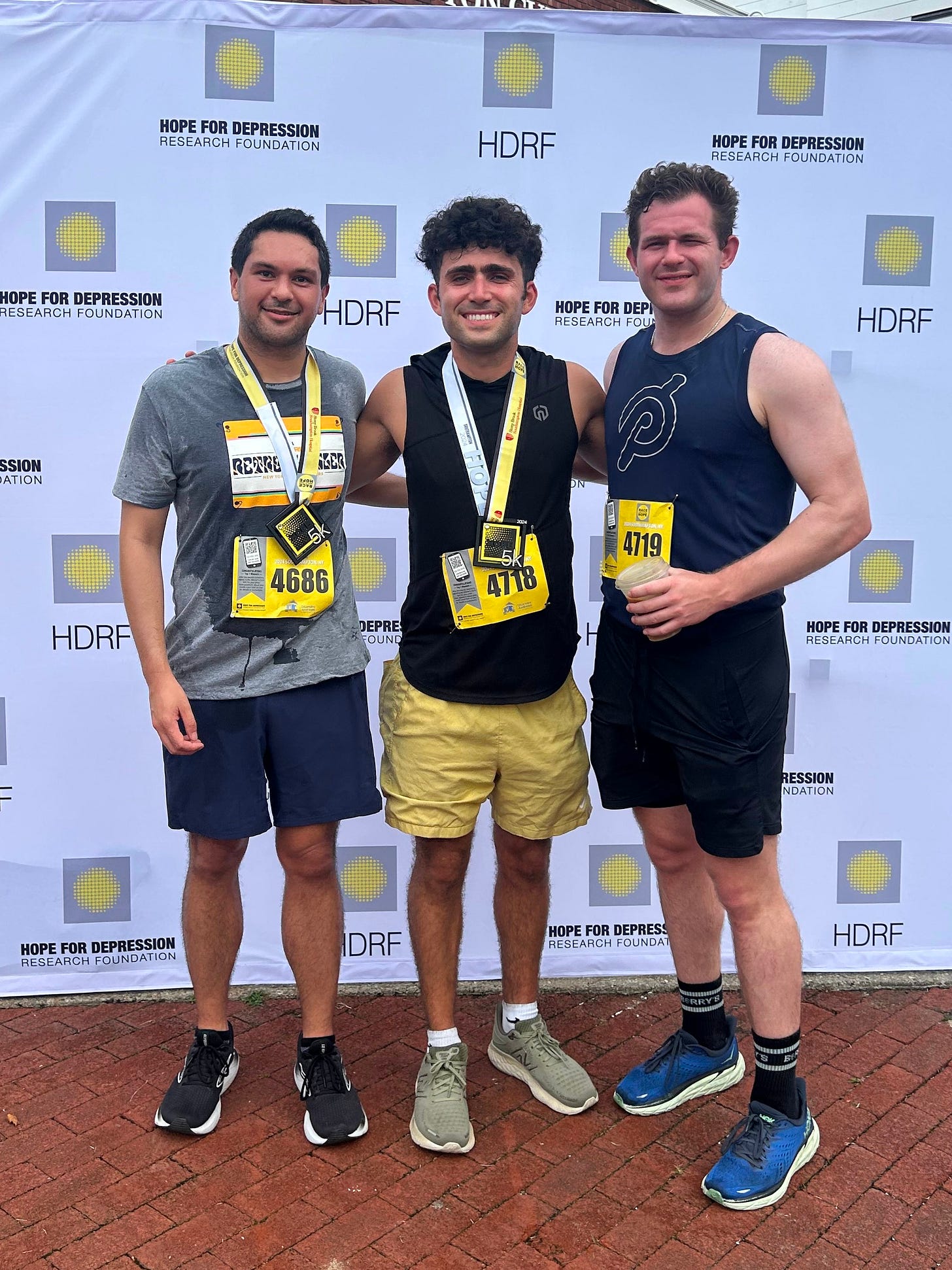Why I Started Anxiety Medication
For years, I put off medication — until I simply couldn't bear living with intense anxiety anymore

For years, I resisted taking medication for anxiety. I tried a natural method: weekly therapy sessions — sometimes two or three in a single week, with different therapists — in addition to tons of exercise, yoga, meditation, cold showers, multiple job changes, healthy eating, and walks in fresh air. I simply didn’t like how, in the U.S., we often medicate problems rather than address their root causes. Overweight? Take medicine. Sad about your job? Take medicine. I worried that if I took something, I’d be numbing myself instead of truly dealing with the issue.
But a few months ago, the anxiety became unbearable to a point I’d never experienced. It affected my ability to communicate, my relationships, and my work. There were days when I simply couldn’t function, days I had to call out “sick” from work, and days in which I had to bail on plans with friends because of anxiety. I declined two wedding invitations last year not because I didn’t want to go but simply because the anxiety I felt was too severe to bear.
One of the hardest days came last September before a friend’s wedding. I could hardly get out of bed until the ceremony in the late afternoon. Then, during the reception, I broke down sobbing—not because I wasn’t happy for my friend, but because I so desperately wanted to live and love life. Yet the anxiety was insufferable. The voice inside my head—really, the "anxiety voice"—told me not to live anymore. I was breaking my own heart, shattering it into pieces.
I had had enough.
Around that time, after years of trying to manage anxiety on my own, I decided to try medication. My wife, Ally, encouraged it, so I researched how to get medication, which included a few calls with a nurse practitioner. It took two tries before my prescriber/nurse practitioner, Avi, and I found the right fit: Prozac, or Fluoxetine, an antidepressant that belongs to a group of medicines called serotonin selective reuptake inhibitors (SSRIs). I didn’t find a few other prescribers as helpful as Avi, who truly listened to me before prescribing anything. He wanted to make the right choice.
Since Halloween, I’ve been on a low daily dose (10mg) of Prozac, and I’ve been shocked at how well it’s worked. I feel like myself again. I can enjoy life. I no longer wake up with a tight chest, and I no longer live in fear. It had been so long with what I call “steady baseline anxiety” throughout the day, even “normal days” at home, that I had forgotten what life was like without anxiety. I had forgotten what it felt like to simply live.
But thanks to medication, I now feel like I have a new lease on life. Prozac has helped me feel renewed and invigorated.
Many friends and family don’t know about my medication (or anxiety) journey. Yet I share this because there’s still a stigma around mental health — and mental health medication — and I don’t think there should be. Not when rates of depression and anxiety are basically out of control, soaring worldwide. Not when, as
has pointed out, anxiety and depression rates among teens have surged since the early 2010s, especially among girls. Haidt says the problem is “devastating,” and I think it might only be worsening.If you are financially able, please take out a premium subscription ($5 per month). Your support, even through a small voluntary contribution, would make a big difference and mean so much.
Some people feel like taking medication is a sign of weakness or failure, as if struggling with anxiety or depression is something that willpower, exercise or meditation alone should “fix.” I also once believed relying on medication was a weakness. I thought relying on medication to feel better was like giving up. But I had tried with all my heart to heal the anxiety naturally, and I just couldn’t do it. As the artist Charlie Mackesy wrote, “Asking for help isn't giving up, it's refusing to give up.”
And look, I’m not saying medication is the answer for everyone, or even that it will help me for the rest of my life. But for now, it has given me breathing room. It has given me hope. And when you’re suffering, sometimes that’s all you can ask for.
I’d been anxious since high school, maybe even middle school, and I didn’t have the words for it then. I just knew that my stomach or heart sometimes clenched before school, that I felt anxious before tests and baseball games, and that the weight of unfinished school work felt like something pressing against my ribs. It wasn’t usually dramatic, not the kind of panic attacks you see in movies — just a quieter, constant hum of worry, like a radio in the background.
As a kid, I thought it was how some people were. That maybe others felt the same, that maybe everyone else had a heartbeat that sped up in the silence between sentences. It wasn’t until years later that I realized not everyone lived like this, and that anxiety wasn’t just a personality trait but something that could be named, understood, and even softened. But back then, it was just me and my thoughts, and I thought that was normal.
By college, I started to realize how much of my life was shaped by it. I avoided situations. I said “no” to things I wanted to do because the uncertainty felt unbearable. I was weighed down by a thousand “what ifs.” I’d freeze out of fear.
But the thing about anxiety is that it’s usually a terrible fortune teller. Most of the things I feared never happened. The conversations I dreaded unfolded naturally. The tests and work obligations I lost sleep over came and went. Life kept moving, whether I worried about it or not. Occasionally, I wondered, what would happen if I let go, even just a little? Medication, more than many other remedies, has helped with that.
The truth is, mental health is just as real as physical health. No one would shame a diabetic for taking insulin or a heart patient for using medication to regulate their condition. Why should anxiety or depression be any different?
If you’re struggling, I hope you give yourself permission to explore what might help you feel better, whether that’s therapy, lifestyle changes, medication, or all of the above. What matters most is finding what works for you and allows you to function, connect, and enjoy life again.
Last year, I almost gave up. I thought that maybe I’d be anxious and miserable my entire life. But please, please don’t give up. You don’t have to suffer in silence. You don’t have to push through the unbearable pain alone. Help is out there. Talk to professionals, family, friends, or whoever else will listen. Don’t hesitate to send me a direct message or email if you need assistance in getting professional help ASAP.
We need one another.
With love, so much love,
Matthew





Heartfelt, honest, and I am sure, helpful to many!